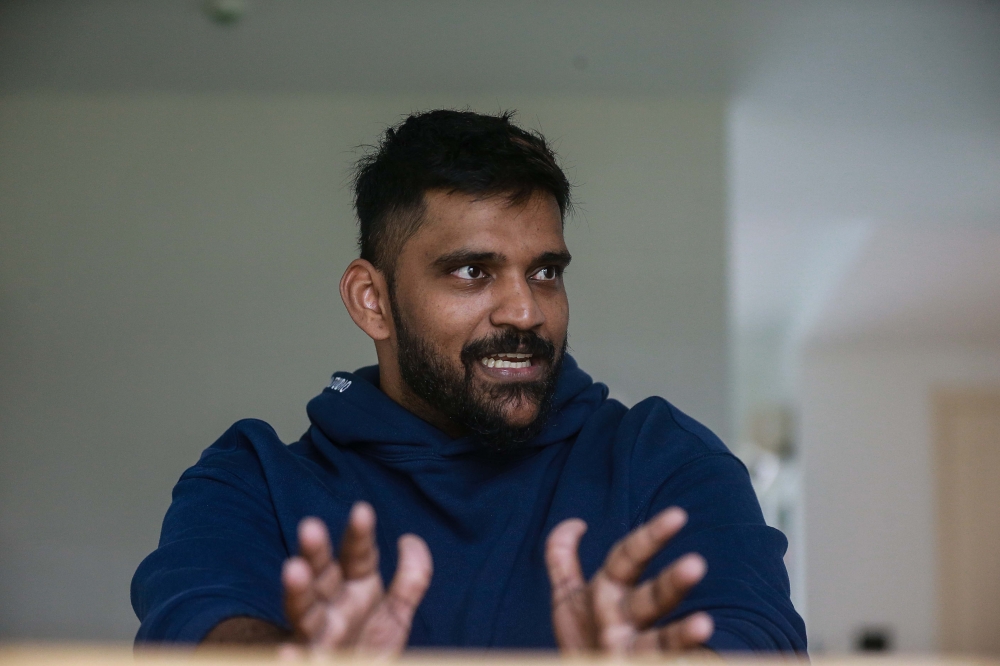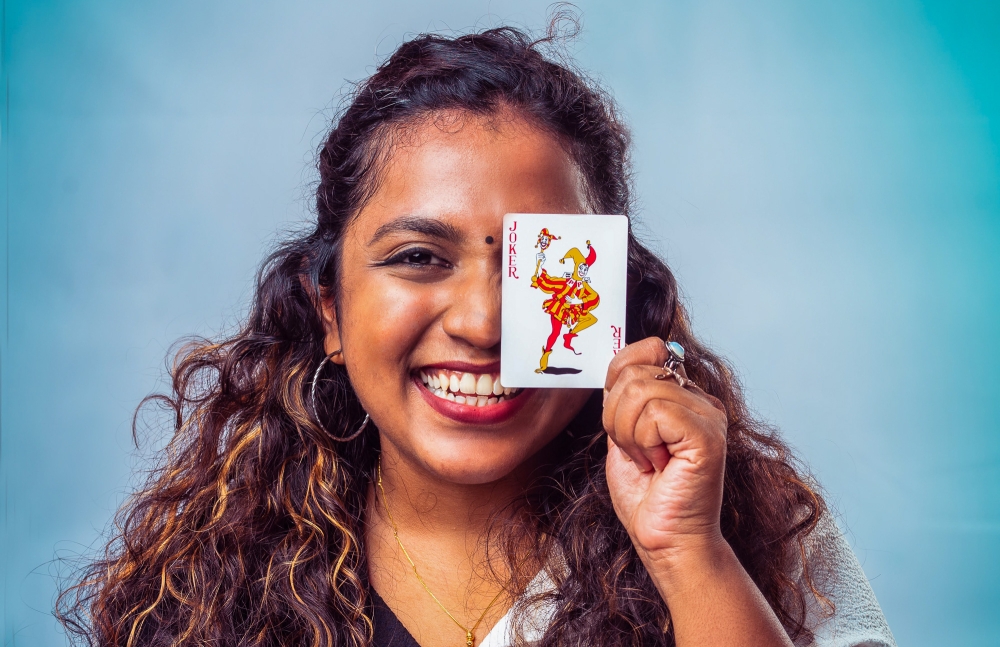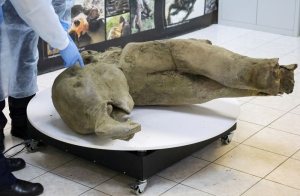- Home
- -
- News
From cringe to comedy kings (and queen): Meet the Tamil comics and creators breaking barriers in Malaysia
- admin
- 29 Sep, 2024
KUALA LUMPUR, Sept 29 — Joshua Michael, Piravina Ragunathan and the Lil Gonsterville troupe are at the forefront of a cultural shift.
These young Tamil comedians have risen above racial prejudice and cultural stereotypes to become breakout stars in Malaysia’s flourishing Indian comedy landscape, helping to showcase the diverse talent within the community.
Initially dismissed as creators of cringeworthy content and subjected to harsh criticism, these young comedians persevered to become respected icons in the online community.
What sets them apart is their unique blend of humour and thought-provoking elements, skilfully raising awareness about issues in the community and beyond, all while entertaining their audience.
For social media content creator Joshua, who came from a lower economic background, becoming a comedian was never a consideration. Like many orthodox Indian families, Joshua’s mother wanted him to become a medical doctor. However, fate and creativity had other plans.
After graduating, Joshua found himself working in public relations at a private college — a field in which he admittedly struggled. Yet this seeming setback led him to discover his true calling in content creation for his university, where he excelled remarkably, thanks to his manager.
His relatable ideas and innovative approach garnered record-breaking engagement, ultimately propelling him to become the institution’s head of social media and later the head of digital marketing.
“I don’t think anyone sets out to be a content creator. When I was doing PR, I would say I was a personality hire,” he said, adding that when he was reassigned to work with his university’s content creation team, he started contributing ideas and even making cameo appearances in some of the videos.
Joshua’s innovative approach yielded significant results, most notably increasing enrollment among ethnic Indians who had previously perceived the institution as predominantly Chinese.
The turning point came with a cleverly crafted advertisement delivered in Tamil, which struck a chord with students by tapping into a universally relatable experience: the flood of phone calls from overly inquisitive relatives following exam results.
This culturally relevant concept — executed at no cost with the help of Joshua’s close friends — garnered 10.5 million views, launching Joshua’s content creation journey.
This success also sparked a personal revelation: he discovered his own comedic talent, recognising his natural wit and ability to elicit laughter from those around him.
Today, he owns and runs Joshua Michael Entertainment and has worked with several big names in Malaysia and in India.
His television debut came with But Antha Dealing Ennaku Pudichireke (BADEP), which translates roughly to “But that deal is appealing to me”, a Malaysian Tamil-language comedy series that premiered on Astro in 2023.
This multifaceted production showcased Joshua’s diverse talents, as he serves as the writer, director, producer, and lead actor. The series gained additional star power with the inclusion of renowned South Indian actor Premgi Amaren in its cast.
He also hosts his own podcast called Ethachum Kettutholaiyum (EKT), which means “Whatever you want to discuss”, where he discusses a variety of topics centred around the Indian community.
According to Joshua, after the Covid-19 pandemic, many people sought out comedy, recognising its significance in their lives. This shift helped them cultivate their sense of humour too.
“The lockdown sharpened my sense of humour even more, with the idea that anything and everything can be funny if you present it well, with some level of thought.”
His comedy masterfully blends slapstick elements with sharp wit and clever sarcasm, creating a unique and engaging style of humour.
His performances are further enriched by skilfully woven innuendos, adding layers of subtle humour for a more discerning audience. This at times, finds him also receiving criticism for content deemed not family-friendly.
“About five years ago, the content that I do now would have gotten me cancelled. I don’t think people in our community would find it funny and would probably say that I am very uncultured and that my content is not something that they would watch. But Covid changed that. Yes, certain things said can be too in your face but so what, at least you’re being honest about it.
“People have started getting more accepting of my brand of humour. It’s not that we are seeing more comedians come out, but rather a lot more being acknowledged as comedians. It is also not that Indians have become receptive, it’s just that we are now seeing past movies for comedy,” Joshua said.

Is there a promising future in this industry?
He noted that his chosen path remains unconventional and is not one easily accepted by Indian households, though there has been encouraging response.
“I feel to be very honest, a lot of families have accepted it, because it is out in the open now and you see a lot of young kids doing very well. Social media content creators are also showing their achievements online and this creates confidence. So it is very clear that this is a big source of income and that is what parents are concerned about, whether a living can be made.
“A lot of brands don’t invest in Indian content creators. The reason is very obvious, because Indians don’t have a lot of say in a lot of purchasing decisions whenever a product drops. But the truth is, Indians in general have been growing with their purchasing power over the years,” he said, adding that brands usually allocate very little budget to market products to the ethnic Indians consumers here.
Joshua aims to change this and to open the path to allow more Indian comic and content creators to be more than just a token appeal.
To date, he has worked with Netflix, Nestle, Xiaomi, Grab, Astro and several other major brands and is hoping for more representation from the ethnic Indian content creators community.
“I take it up as a flag bearer so more and more people can see that Indian content creators have great influence,” he added.
Still challenging for females, but opportunity for growth aplenty
For Piravina, proving herself as a comedian involved additional challenges, as she navigated being an Indian woman in a field predominantly occupied by male comics and content creators.
She added that while the industry is making strides towards more inclusive content, the representation and roles available remain limited and frequently reinforce stereotypes.
“There’s a stereotype that women aren’t as funny, but that’s a conversation for another day. I address these challenges by focusing on being true to my art and letting my comedy speak for itself.
“There are still expectations for us to behave in certain ways or have specific quirks that align with stereotypes. I believe it’s time to move beyond superficial diversity and focus more on the talent and creativity of individuals, rather than just the colour of their skin,” she told Malay Mail.

As for the future of Tamil/Indian comedy and content creation in Malaysia, Piravina concurred with Joshua on the potential for growth.
“We can anticipate increased digital presence. Not only that, but I also see diverse storytelling that suggests a vibrant and evolving landscape for Tamil/Indian comedy and content creation in Malaysia,” she added.
Last year, Piravina staged her first solo special, titled Am I The Drama?!, which became a hit and completely sold out. This milestone opened the door for her to explore more opportunities. She also had a stand-up comedy show in India, which she labelled as a “thrilling and validating” experience.
“Additionally, performing stand-up comedy for the pilot show Sirikkatheengga Please on Astro was a significant highlight, marking my debut on television. These experiences not only made me more visible but also attracted more attention, leading to increased shows, likes, follows, and shares,” she added.
Interestingly, Piravina did not initially set out to carve a name for herself in the Indian stand-up comedy scene. It was only a bucket list wish, which has since turned into a remarkable journey as she established her own niche.
“Finding your unique voice and content style amidst a sea of videos can indeed be challenging. It requires experimenting with different formats, themes and approaches until you discover what resonates with both you and your audience.
“Consistency and authenticity in your content, combined with a clear understanding of your target audience, can help differentiate your work and establish a distinctive presence,” she said.
Piravina hopes for more ethnic Indian women to come to the fore to try comedy and to seize the opportunities in the evolving industry.
“I began my comedy journey about five years ago, and Tamil comedy in Malaysia started to gain traction a year or so later. The scene is still relatively fresh and evolving, gaining momentum especially since the pandemic.
“This growth has attracted many newcomers eager to explore and contribute, but I hope to see more women exploring and contributing to this vibrant art form.”
Creating awareness from personal experiences to end racism
For Brian Jude D’ Silva and M. Raguvattan, their comedic content is rooted in personal encounters with both subtle and overt racism.
As members of the quartet Lil Gonsterville, they employ slapstick humour and sharp sarcasm to highlight the challenges and stereotypes faced by ethnic Indians.

However, despite their backgrounds in IT and mechatronics engineering, respectively, they have repeatedly faced hate and criticism for addressing these issues in ways some deem as not family-friendly.
“What I always believe when I tell my friends is that stereotypes, if you let it affect you, people are going to do it more as they want reactions. But when you don’t, it dies down.
“So we try to turn that into content. Show people that it’s okay to laugh at each other as long as, well if you can throw a punch, you should be able to take one back. That is what we try to push out because we do make a lot of stereotype jokes centring around Indians and nowadays, we also do (such content) for the Chinese and the Malays to just show that it is a joke.
“I think a lot of people misinterpret it as us attacking our own community but that is not the case,” Brian said.
Meanwhile, Raguvattan shared his own experience of being mistaken for a thief in the past, recalling how some non-Indians would lock their cars upon seeing him.
“So we turn all these episodes as content to educate others not to react in such a way to all Indians,” he added.
Like their peers Joshua and Piravina, Brian and Raguvattan are optimistic about the opportunities for Indians in comedy and content creation.
“Don’t be afraid to do what you want. Just try it out. You have to keep trying until it resonates,” Raguvattan advised aspiring content creators.
He added that the group is also committed to producing content that is entertaining without promoting any vices or issues which touch on religion.
Recommended reading:
- ‘Amalina Santesh’: From factory floors to comedy fame, tickling Malaysia’s funny bone with a Tamil-Malay twist



